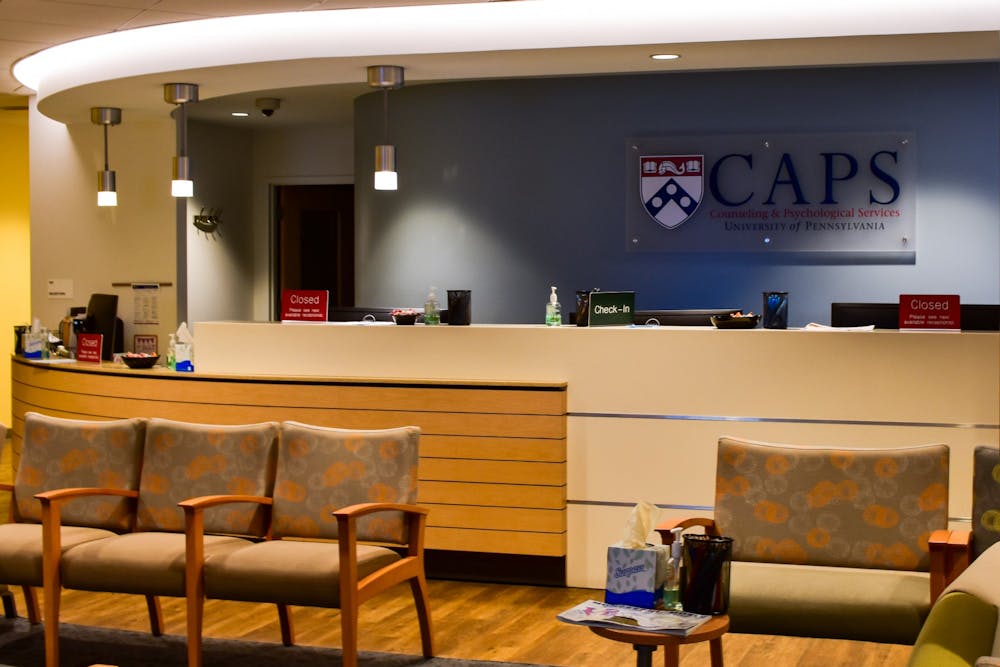Penn’s Counseling and Psychological Services expanded the hours of its Let’s Talk program this semester, while also adding four clinicians and three locations to the program.
The Let’s Talk program, which was introduced in October 2019, initially featured one clinician traveling between five locations each day from Monday to Thursday. The expanded team of clinicians will now travel to Pottruck Fitness Center, Weingarten Learning Resource Center, and Education Commons in addition to the original five locations: The LGBT Center, the ARCH building, Van Pelt Library, the Greenfield Intercultural Center, and the Graduate Student Center.
CAPS also increased the program’s hours from 20 hours to 40 hours per week and added times on Friday.
Former CAPS Executive Director Gregory Eells, who died by suicide in September 2019, launched the program at Cornell University as the director of Cornell’s Counseling and Psychological Services Department. Nearly 100 universities and colleges nationwide have adopted the Let's Talk program, according to Cornell Health.
The program differs from a regular drop-in appointment at CAPS because students are not asked to complete an extensive questionnaire prior to the conversation, CAPS Associate Director of Outreach and Prevention Batsirai Bvunzawabaya said.
Last semester, CAPS staff psychologist Yacob Tekie was the Let's Talk program's only counselor. Bvunzawabaya said that CAPS added four new clinicians in hopes to better meet students' needs, as some students said they felt more comfortable speaking to counselors from specific backgrounds, such as gender. Current CAPS staff psychologists Brittan Davis, Derik Yager-Elorriaga, Marilia Marien, and Ben Ototivo are the four new Let's Talk clinicians.
“The clinicians asked to join the program," Chief Wellness Officer Benoit Dubé said. "It wasn’t like we had hours to fill and just chose them. The clinicians heard from students how beneficial Let’s Talk has been for them and asked to join it."

RELATED:
CAPS will launch behavioral health consultant program to streamline communication with SHS
Penn creates new branch under Provost Office for CAPS and Student Health Service
Bvunzawabaya said that CAPS was able to double the hours for the program with the addition of four new clinicians. She added that the Let's Talk program increased its hours the most at Van Pelt Library, as Van Pelt was the most utilized of all the original sites.
The Executive Director of Penn Benjamins and College junior Rachel Pak pointed to the accessibility of the Let's Talk program as an easy way for people to get the help they need.
"When people hear the word 'CAPS,' or even 'counseling,' [those words] can be really alarming, even to someone who is seeking out some kind of help," Pak said. "So penetrating those barriers, whether it be distance, formality or something else, can only help people get what they need."
Co-president of TableTalk Penn, the Penn branch of a national organization aimed at fostering conversation within college campuses, and College sophomore Brian Song echoed Pak's thoughts, adding that the program could help students be more "open and vulnerable" when having conversations around mental health in a more comfortable setting.
The increase in the Let's Talk program's locations, clinicians, and hours comes less than a semester after the program began. Bvunzawabaya added that CAPS plans to expand the program in years to come.
“We’re just trying to give students more options to access the program," Bvunzawabaya said. "Whether that be more times to fit their schedules or location, we are trying to give students the most options to get what they need."









